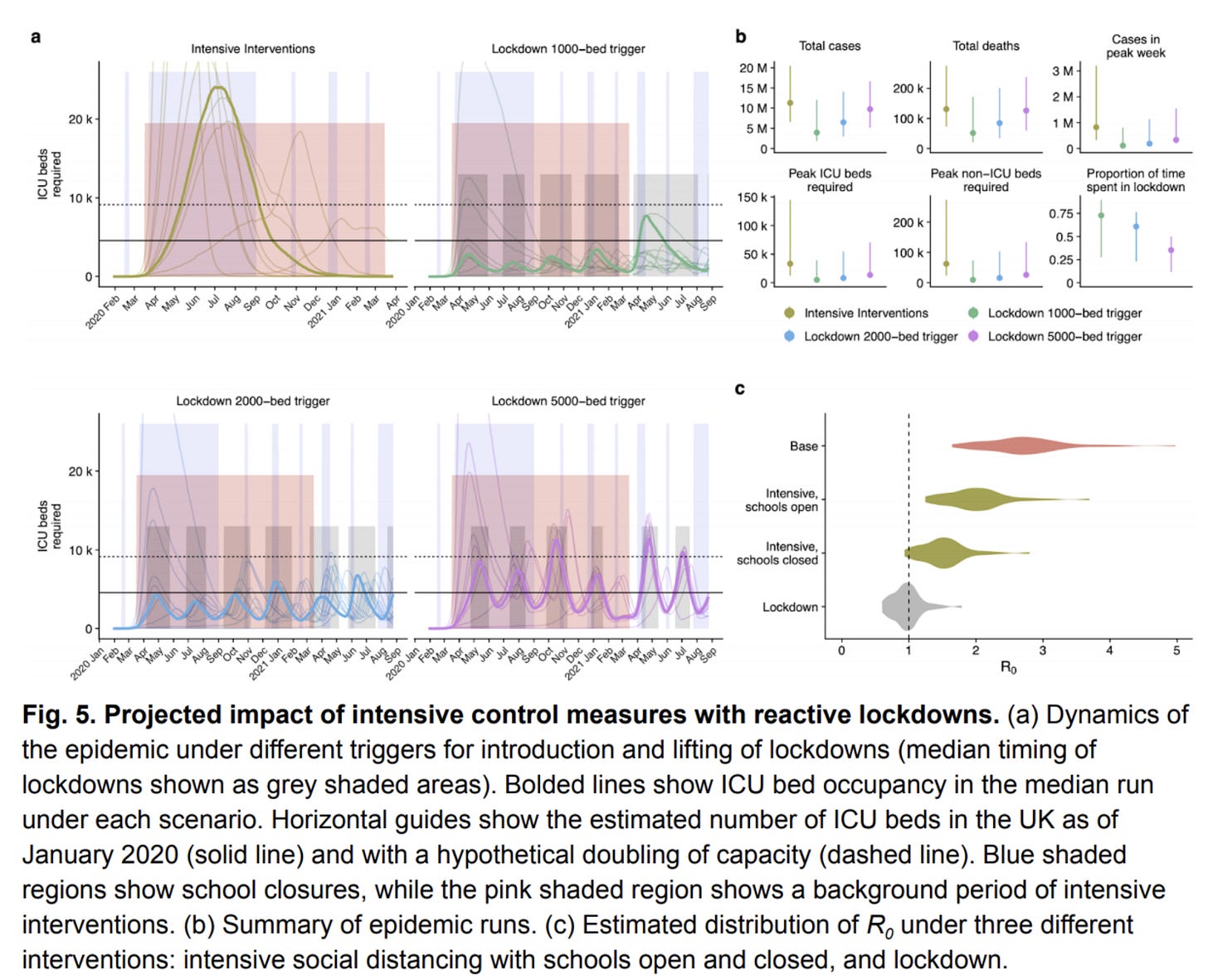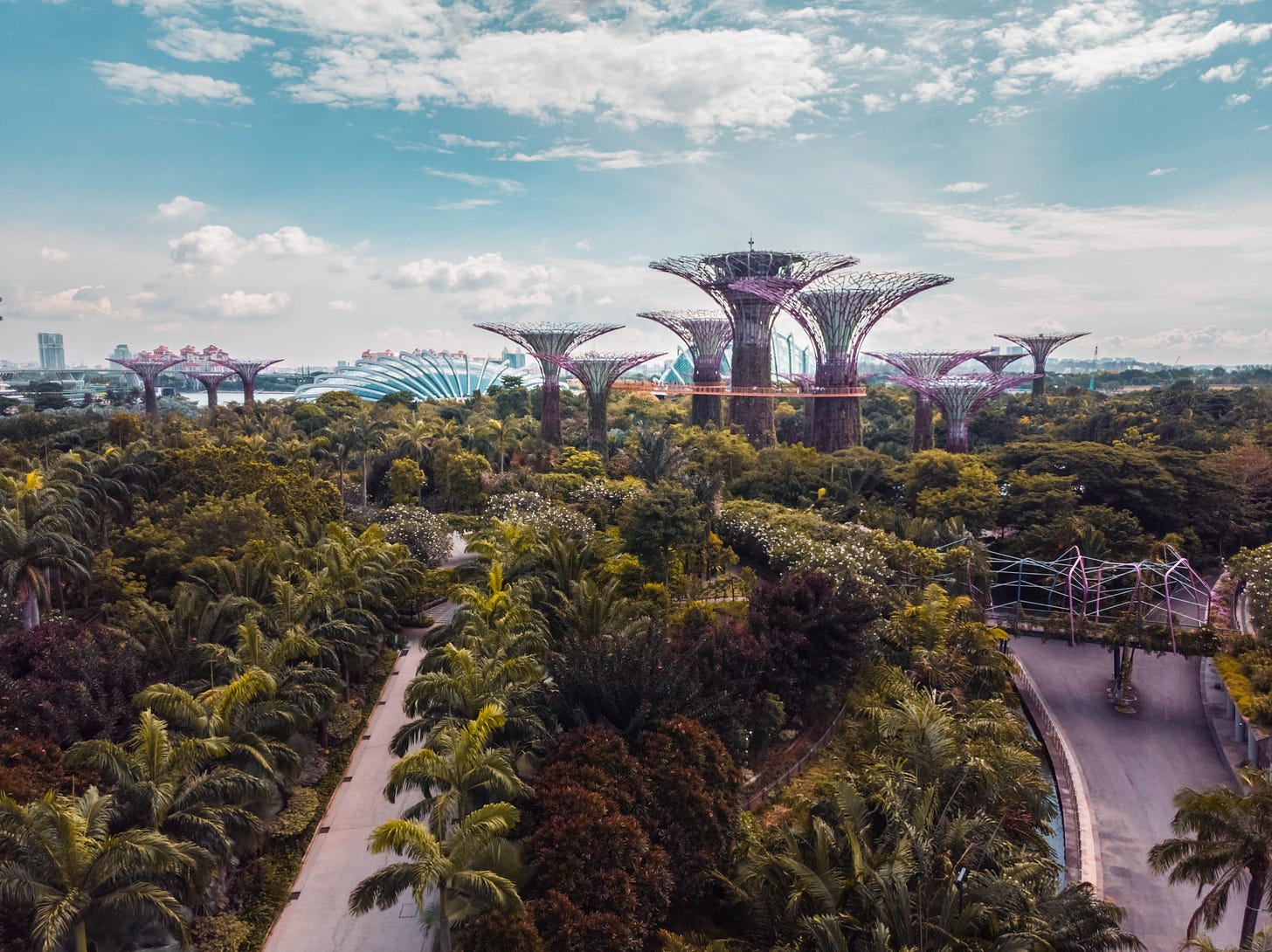Building a post pandemic world society
Covid19 as a catalyst for societal change - risks and opportunities.
The covid19 pandemic can be seen as an opportunity to question the fundamentals of modern society and to think through alternative paths for the future. That's what this post is about.

https://unsplash.com/photos/RRshxnCn8Lk
Like it or not, we live in interesting times. They are times of danger and uncertainty; but they are also the most creative of any time in the history of mankind. And everyone here will ultimately be judged - will ultimately judge himself - on the effort he has contributed to building a new world society and the extent to which his ideals and goals have shaped that effort.
Robert Kennedy, 1966
Times of danger and uncertainty
The interconnected and integrated systems we are living in might get infected by the virus one after another.
Healthcare
Despite intense testing we still have to deal with only a glimmer of data. Antibody testing is still in its infancy, so are the developments of vaccines and treatments. It's unclear how far we are down the infection cycle, what are the major risk factors, how long immunity lasts and how the virus might mutate in the future. As of today I believe the most likely scenario will be an extended period of continuous, adaptive suppression strategies throughout 2021, maybe beyond. This would be in line with the most recent findings published by Imperial College London and Harvard T.H. Chan School of Public Health.

Everything that follows is highly dependent on how the health crisis plays out.
Economy
With regard to the long term economic implications of the covid19 pandemic we have even less visibility. Experts are throwing numbers at us that vary by orders of magnitude - estimates for unemployment rates, GDP contraction and consumer confidence levels are all up in the air and change on a daily basis. As a recession progresses, negative feedback loops undermining the recovery are a key risk factor: less employment means lower wages, which means less purchasing, which causes companies to pull back on production, which then lowers employment further. Stimulus alone won’t help - it’s a about consumer behaviour.
The spread of the virus and government interventions are the most relevant dimensions of the recovery followed by the structure of it. Deep behavioural shifts will last and prevent certain industries from recovering to pre covid19 levels while others will strongly benefit from it. An extended global supply and demand shock is unprecedented in human history and it doesn’t feel like the markets are properly pricing in those risks in my opinion.

Finance
Given that the long term healthcare and economy related implications are unclear we have a tough time to figure out the consequences for the global financial system. Unprecedented government intervention is hailed as the end of free markets by some.
"There is no such thing as a free market anymore (...). In a matter of weeks, policymakers have become a backstop for private-sector credit markets. At the extreme, central banks could become permanent command economy agents administering equity and credit prices, aggressively subduing financial shocks. It would be a bi-polar world of financial repression with high real economy volatility but very low financial volatility. A 'zombie' market."
George Saravelos, Deutsche Bank's global head of foreign exchange research (April 13th)
By introducing quantitative easing unlimited the lender of last resort turned into the buyer of last resort. But didn't history prove that central planning doesn't lead to efficient capital and resource allocation? Why are we bailing out companies that are fundamentally unsound? The mantra of ‘too big to fail’ is back. Wealth inequality is at historical highs and will grow further: Low income jobs are more vulnerable to the pandemic and remote work benefits the rich. Excessive money printing bears a high risk of inflation, leaving savers without stock market exposure behind. This is not capitalism. Where does it end?
(Geo) Politics
The pandemic might accelerate a seismic shift in geo political power structures that is on its way since the late 20th century. In The changing world order, Chapter 1 - the big picture in a tiny nutshell by Ray Dalio the curious reader finds a great summary of such developments.

Why do I believe that the pandemic will accelerate those developments? First, the onshoring of production is likely to turn into a broader trend leaving the world powers with less interdependencies. Less interdependencies mean lower barriers for conflicts - one does not attack important trading partners. Second, security concerns and more efficient fiscal stimulus distribution are driving the introduction of government controlled digital currencies. Cash might be banned. Government controlled digital money will be leveraged to expand RMB’s and USD’s reserve status in emerging economies. Historically, sovereign money that seeks to replace an existing reserve currency has mostly lead to unrest and conflicts. In many countries we are witnessing the accelerated erosion of democratic social contracts due to authoritarian leaders rolling back checks and balances as well as civil rights. Surveillance in the form of AR temperature scanners, (virus) tracing apps, police drones, face recognition software and censorship became a dystopian reality.
Building a new world society
So, where do we go from here? I think we will have to take some big, directional decisions collectively: nationalism vs. globalism, security vs. civil liberties, big government vs. free markets. What are the opportunities ahead of us?
Attention to dissident thinkers and collective action
Social mass media leads to ultimate group think. Dissident thinkers are muted, stigmatised and often criminalised like the health experts who rang the alarm bell as early as December 2019. We now have the opportunity to reflect and become more attentive to inconvenient, radical ideas especially if they're coming from subject matter experts. After public sentiment shifted most societies were adapting decisively and voluntarily to protect the weak. That makes me optimistic to see humanity stand together against other long tail event and existential threats like climate change.
Rethinking our relationship to animals
Animals we sold in cages have spread the virus that is now imprisoning us in our own homes. After BSE, swine flu and bird flu it was only a matter of time once a dangerous transmittable disease managed to jump to other species. Wood clearing, excessive human expansion into wildlife areas and factory farming force animals to live in higher density creating perfect conditions for a virus to spread. Shouldn’t we rethink how we interact with the fragile ecosystems surrounding us - not just for the sake of ethics but our very own survival?
Agile healthcare
Pharma is stuck in an innovator's dilemma which became even more obvious during the pandemic. Research organisations collaborate only punctually, data sharing infrastructure, approval processes and capital allocation still seem inefficient. Drug development collaboration, new financing mechanisms, telemedicine, AI based drug discovery and gene therapeutics will become a mega trend over the next decades. I’m excited to see the potential of open source and open data principles being applied to drug development and healthcare.
Remote everything but local production
A variety of industries still lives in the industrial age - administrative bodies, governmental services, the legal system, schools, the old economy. Physical goods are produced and distributed throughout complex supply chains coming with inherent risks. We will have global marketplaces for ideas, knowledge work, data, entertainment and financial assets while physical production will be nationalised and onshored. Business processes spanning relationships, group collaboration, documentation and transactions will be enabled by immersive reality, collaboration software and crypto financial protocols coordinating resources over the internet. The pandemic serves as a huge adoption catalyst.
Officeless, trafficless cities
It took a global pandemic to make humanity realise that remote work actually works for knowledge workers (so much work in one sentence). Working from home is here to stay - less traffic, less parking slots, less office buildings. Complemented by delivery drones, self driving cars and trains that are programmatically adapting to fluctuating demand will free up enormous space in metropolitan areas over the next decades. We will have space to create more human centric cities.

Photo by Victor Garcia on Unsplash
An internet native financial system based on true scarcity
As the past few months have proven nothing is scarce in modern finance - money is a piece of paper that can be printed indefinitely. In such an environment the rise of non sovereign sound money assets like gold and cryptocurrencies will provide an alternative. Crypto assets are borderless, inclusive, censorship resistant, verifiable, hard to seize and highly programmable. Based on those attributes we can build an internet native financial system. In such a system monetary and financial assets can neither be created out of thin air, nor can they be manipulated or weaponised by any central institution. Crypto finance offers us a new social contract.
Privacy preserving data sharing
The Covid19 crisis could become a watershed moment similar to the Sept. 11, 2001, terrorist attacks, which ushered in new government surveillance powers around the world in the name of protecting public safety. Many citizens have welcomed tracking technology to bolster defenses against covid19 but once surveillance powers are in place, they rarely recede and can be repurposed as a political tool.
New approaches to privacy preserving data sharing are on the rise and have the potential to square the pandemic trilemma of economic interests, security from the virus and privacy. Tracing applications can and should be open sourced, verifiable and only be used voluntarily. Data harnessed from those applications should be made publicly accessible - not just for governments. It is our data and we should benefit from it collectively. The technology is ready, it’s up to us to opt out of big tech and into alternatives.
Open source institutions and new media
Mass media and established institutions have failed to maneuver us through this crisis appropriately.

We need private, censorship resistant communications infrastructure and institutions that are radically transparent and accountable. Through cryptography enabled information marketplaces and incentive schemes we are empowered to achieve both. These technologies are still emerging but their relevance grows every day and I’m optimistic about seeing many of them being widely adopted over the next few years.
What did I miss? Where am I wrong and why? Please comment.





Thanks Jeff - I couldn’t agree more. It almost feels as if the world is holding a mirror in front of us. We need to decide if we (1) freeze, turn away from others, only care for ourselves or (2) open up, support and comfort others. Same on nation state level - stealing masks from other countries, blaming them for the outbreak or taking responsibility for others and show solidarity.
Hey Alex, that's great work. I think the only thing we are missing here is long term shift in real estate preferences. So many couples working from home are stuck in one-bedrooms and studios fighting for space for work and calls, not to mention the urban families trapped in flats that didn't flee to a more open space with a garden, or near a creek, a beach or a hiking spot. I'd expect the premium on extra garden, footage, extra room to go even higher. Until now the RE market all about location, but with more permanent shift even in 5% or 10% of the workforce, people will be looking for better use of their $.